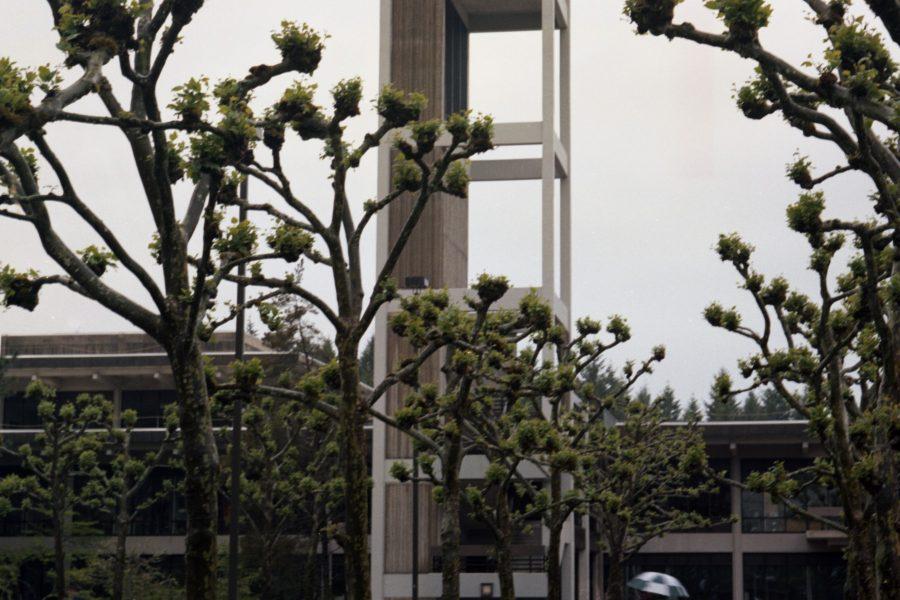Evergreen State College: Breaking from Tradition
If you’re a student looking for a relatively normal college experience, you probably shouldn’t go to Evergreen State.
The school, founded in 1967 and located in Olympia, Washington, seems to take a sort of perverse glee in flouting convention, tradition and generally a lot of things that regular colleges do.
Evergreen’s motto is “Omnia Extares,” which loosely translates to “Let it all Hang Out.” Let what all hang out, you might ask? It’s doubtful that anyone really knows. In fact, “Omnia Extares” isn’t even a real sentence in Latin.
Its mascot is the geoduck (actually not a duck, but a species of giant clam native to Washington with a long, fleshy neck), because a regular animal would just be too mainstream wouldn’t it? The school seems to take great pride in the fact that most would consider this a terrible representative: there’s an entire page on Evergreen’s website dedicated to listing how many “Worst College Mascots” lists Speedy the Geoduck has made it onto.
But beyond face-value characteristics like mascots and mottos lies a set of qualities that truly set Evergreen State apart from almost any other school.
To start, there aren’t really such things as classes, at least not in the traditional sense. Instead of picking out individual courses from a catalog, students choose from a menu of “programs” each quarter — interdisciplinary learning experiences taught collaboratively by a group of professors from different fields.
In typical Evergreen State fashion, many of these programs are quite strange: one is called “Dancing Molecules, Dancing Bodies” — a program that combines chemistry and biology with a field not usually taught in conjunction with the natural sciences — dance. It’s not as if this combination of disciplines is completely arbitrary, though: each program’s professors work closely together to develop unified, thorough curriculums.
But that isn’t to say that there aren’t some more normal programs to choose from for the slightly less adventurous. “An Ethics of Generosity: Community In and Through Creative Writing, 2D Design and Visual and Literary Theory” could appeal to a broad swath of students interested in the visual arts, literature, aesthetics and Native American studies (a section of the program focuses on Indigenous art and culture). There’s one program that’s simply called “Borders.”
With an acceptance rate typically hovering somewhere around 99 percent, Evergreen State isn’t exactly the most selective institution. This is good for students who didn’t take the whole “grades” thing all too seriously during high school (the average GPA of admitted students is a 3.04), since once they get to Evergreen State, there are none.
No grades? Not a single letter, number, or other symbol denoting a student’s level of achievement in a course? Of course not — this is Evergreen State, after all, and if they think there’s a better way of doing things, they’re unafraid of breaking from the status quo.
But it’s not as if students don’t get any feedback. In fact, it’s quite the opposite. Upon completing a program, instructors will write each student a “narrative evaluation” — a written document out-lining things like “How you approach your work,” or “Highlights of your skills and abilities.”
With this, students can learn for learning’s sake, free of the pressure to succeed brought on by letter grades. This makes Evergreen a place for self-motivated students: what you get out of your four years is largely dependent on how willing you are to find enjoyment in your studies.
But for all of its quirks, Evergreen State is a truly special place. It’s a breeding ground for independent thinkers, artistic geniuses, and apparently, visionaries of successful animated TV shows (“The Simpsons” and “Hey Arnold” were both created by Evergreen grads).
Other alumni include current Washington Representative Denny Heck, bestselling author Benjamin Hoff, rapper Macklemore, ex-Sleater Kinney member and actor Carrie Brownstein and medicinal mushroom advocate Paul Stamets.
It’s a learning experience that’s truly like no other, and Evergreen State’s students, faculty and alumni wouldn’t have it any other way.



